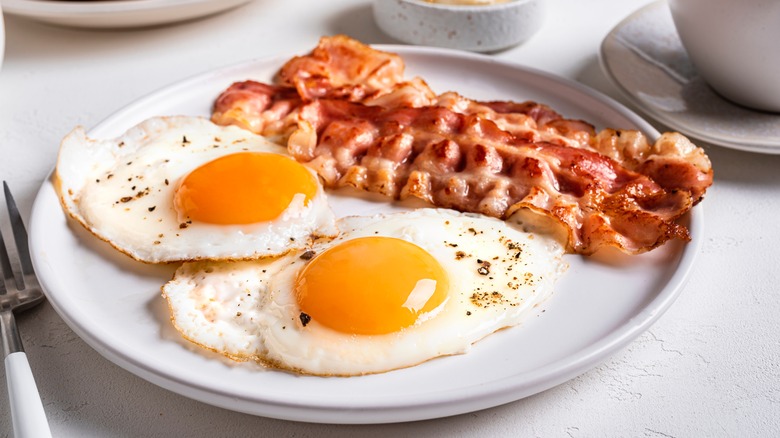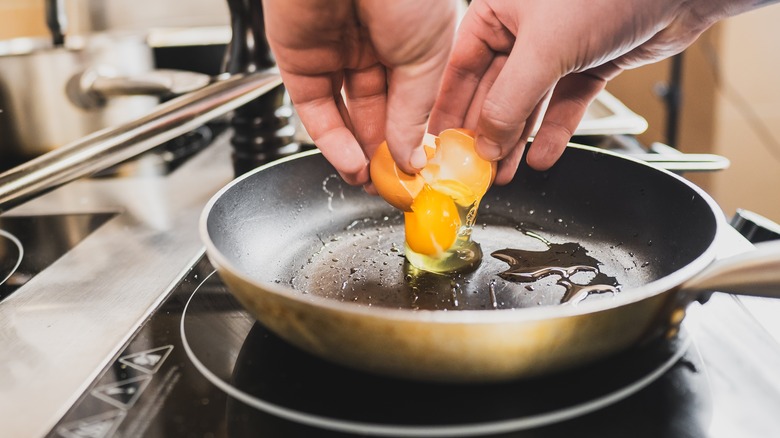The Common Pantry Staple We Never Thought To Add To Fried Eggs (But It Makes So Much Sense)
There are all kinds of fried egg hacks out there that range from clever to absurd. Whether it's the techniques that Ree Drummond uses to make a perfect sunny-side up egg, or mixing some sour cream into your scrambled eggs for extra rich flavor, sometimes the most out-of-the-box hacks can lead to the best results. One age-old trick that has been used by chefs for generations is adding a splash of vinegar to your eggs, according to Edmund "Ed" McCormick, Food Formulation Consultant & President at Cape Crystal Brands, in an exclusive interview with Food Republic.
McCormick specializes in ingredient functionality, hydrocolloids, and food–texture chemistry, making him an expert on using science to give your breakfast a boost. "The mild acidity gently denatures the egg whites' proteins, tightening them more quickly so they set smoothly with fewer wispy edges," he says. The result? McCormick claims the eggs end up with a "cleaner, tighter white and a smoother surface texture." And if you're not a fan of vinegar, rest assured that a splash is all you will need. "In terms of flavor, the acidity brightens richness — cuts through butter or oil with a little zing that highlights rather than masks the egg's taste," he adds.
Expert tips for cooking eggs with vinegar
It's no secret that vinegar is a versatile kitchen staple — in fact, adding vinegar to cake batter is the best baking hack. But, when it comes to fried eggs, the key is to add the vinegar at the correct time. "Timing is everything," warns McCormick. "Just before the eggs go into your pan, stir in the vinegar — a teaspoon or two mixed with your oil or butter as it heats," he says. "The acid is dispersed evenly, so the whites coagulate as soon as they come into contact with the hot surface." For poached eggs, it's best to add two teaspoons of vinegar as the water begins to boil to keep the eggs together, advises McCormick. Adding a splash of vinegar to hard-boiled eggs makes peeling a breeze, as the acidity of the vinegar erodes the calcium carbonate in the shell.
As for the type of vinegar to use for your fried eggs, McCormick is clear on that. "A clear, light vinegar allows the egg's natural brightness to shine without making its own statement," he says. He also warns against any "strong or dark vinegars, like balsamic or malt, which can muddy the color and overwhelm the aroma." For fried eggs in particular, McCormick says the best option is "rice vinegar or white wine vinegar — they are mild, a little fruity and not as punchy as to kill the delicate egg flavor." Wine vinegar is known to add a nuanced flavor to eggs while creating a creamy texture.


